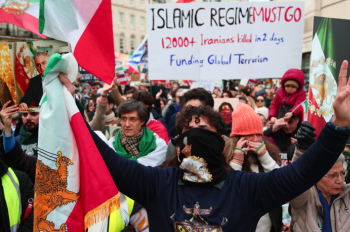
As I have previously commented, there is a hunger among young people in the United Kingdom church today. It is not loud, dramatic, or headline-grabbing. It is a revival that moves quietly, like mist rising at dawn, like green shoots pressing through winter soil. Yet, it is unmistakably real.
If we are to steward this quiet revival well, we must plant churches—now.
Across the nation, in homes, schools, and university campuses, in refugee centers, and WhatsApp prayer groups, the Spirit of God is awakening hearts. In diasporic communities—among African, Asian, and Latin American believers in the West—a deep, Spirit-led renewal is taking place. This revival may not resemble that of Wales, Azusa Street, or East Africa, but it carries the same pulse: to make Christ known and form Spirit-filled communities of grace, justice, and joy. But here’s the challenge: if we are to steward this quiet revival well, we must plant churches—now.
In such a moment, planting new communities of faith becomes not only necessary but profoundly urgent. To plant a church is to declare hope in a cynical world. It is to say that God is not done with this neighborhood, this city, this culture, or this generation. It is a prophetic act in a time of anxiety, disillusionment, and deconstruction.
The church planter sees fertile ground made ready by the workings of the Spirit.
Where many see only decline or institutional fatigue, the church planter sees fertile ground made ready by the workings of the Spirit. Church planting offers a vessel to hold what the Spirit is birthing—new life that does not quite fit the old wine skins.
It creates space for fresh expressions of worship, contextual mission, holistic discipleship, and deep belonging. It is a way of saying, “Yes, Lord—we believe that your kingdom is still coming, here and now, in this place.” It is how we build dams to hold the rains of revival to reach future generations.
This quiet revival is especially visible in the margins, which is where God so often begins. I have seen African mothers praying through the night in Birmingham, Filipino nurses gathering for dawn communion in Cardiff, Eritrean fathers fasting for their children’s future in London, and Congolese youth leading choirs in Brussels with harmonies that carry the longing of exile and the hope of Zion. These are not side-stories. They are the front lines. Yet they often go unnoticed by the traditional centers of ecclesial power.
Church plants give structure to what God is doing outside the spotlight.
That is why we need church plants—to give structure to what God is doing outside the spotlight. These new churches may not resemble our inherited cathedrals or institutional congregations.
They may be messy, multilingual, intergenerational, and mobile—but they are alive with the Spirit. They carry the essence of Acts 2: shared bread, shared prayers, shared burdens, and shared urgency.
Church plants are also essential for forming new leaders. In large, inherited churches, it is often difficult to raise leaders from marginalized or diasporic backgrounds, especially when systems are slow to adapt. But in small, flexible, mission-oriented communities, there is room to train, disciple, and release new voices.
Church planting creates space for Spirit-led leadership to emerge from unexpected places.
These are not simply leaders for co-called “ethnic churches”, they are gifts to the whole body of Christ. Diaspora communities carry immense spiritual capital: deep prayer traditions, sacrificial hospitality, communal resilience, and theological imagination born of suffering and migration. But these gifts must be stewarded, not merely celebrated. Church planting creates space for Spirit-led leadership to emerge from unexpected places. We must not miss this moment.
Importantly, we must also clarify what kind of church planting we mean. This is not about replicating old models of the West, franchising brands, or building platforms. Nor is it about chasing numerical growth or institutional recognition. It is about discerning what kind of churches the Spirit is forming in this new era of mission.
It is about decolonizing our ecclesiology so that the shape of the church is formed not by empire but by the cross.
It is about churches that are radically local, courageously intercultural, and deeply theological. It is about building churches that can hold lament and celebration, that honor both the old and the emerging, that carry the memory of the saints and the vision of the prophets. It is about decolonizing our ecclesiology so that the shape of the church is formed not by empire but by the cross. Church plants, when done with humility and prayer, are not expressions of ambition—they are expressions of obedience.
So, in this season, planting churches is not simply a strategic initiative, it is a spiritual necessity. Every revival in church history has birthed new communities of worship, mission, and discipleship. The quiet revival of our day will be no different. The only question is whether we will recognize it, honor it, and build the kind of ecclesial homes where it can thrive.
It is time to sow. Not just in faith, but with wisdom, care, and cultural sensitivity. It is time to listen to the Spirit and to the streets. My prayer is that we will say yes—to the Spirit’s invitation, to the people God is raising, and to the patient, often unseen work of planting seeds for a harvest we may not yet fully understand, but which God is already preparing.
As we plant, may we do so with open hands, open hearts, and open tables—ready to welcome the kingdom that is already breaking in among us.
I pray that you will be faithful to the work God has for you this week.
Originally published on Harvey's Substack, Global Witness Globally Reimagined. Republished with permission.
Dr Harvey Kwiyani is a Malawian missiologist and theologian who has lived, worked and studied in Europe and North America for the past 20 years. He has researched African Christianity and African theology for his PhD, and taught African theology at Liverpool Hope University. Harvey is also founder and executive director of Missio Africanus, a mission organization established in 2014 as a learning community focused on releasing the missional potential of African and other minority ethnic Christians living in the UK. More recently he became African Christianity Programme Lead for CMS (UK) Pioneer Mission Training.






